Short title.
1. This Act may be cited as the Corruption (Prevention) Act.
2. Interpretation.
2.-(1) In this Act-
“appointed day” means the 1 st day of May, 2001.
“Commission” means the Commission for the Prevention of Corruption established under section 3;“document” includes, in addition to a document in writing-
(a) any map, plan, graph or drawing;
(b) any photograph;
(c) any disc, tape, sound track or other device in which sounds or other data (not being visual images) are embodied so as to be capable (with or without the aid of some ther equipment) of being reproduced therefrom;
(d) any film (including microfilm), negative; tape or other device in which one or more visual images are embodied so as to be capable (with or without the aid of some other equipment) of being reproduced therefrom;
“government company” means a company registered under the Companies Act being a company whose policy the Government or an agency of Government, whether by the holding of shares or by financial input, is in a position to influence; “public function” means any activity performed a single time or continually, whether or not payment is received therefor, which is carried out by—
(a) a person for, or on behalf of or under the direction of a Ministry, Department of Government, a statutory body or authority, a Parish Council, the Kingston and St. Andrew Corporation or a government company;
(b) a body, whether public or private, providing public services:
(c) a Member of the House of Representatives or of the Senate in that capacity;
“public servant” means any person-
(a) employed-
(i) in the public, municipal or parochial service of Jamaica;
(ii) in the service Of a statutory body or authority or a government company;
(b) who is an official of the State or any of its agencies;
(c) appointed, elected, selected or otherwise engaged to perform a public hnction.
(2) For the purposes of paragraph (b) of the definition of “public hnction”, “public services” includes the provision of electricity, water and communication.
(3) References in this Act to an act of corruption shall be construed in accordance with section 14.
3. Establishment of Commission
3.–(1) There is hereby established for the purposes of this Act, a body to be known as the Commission for the Prevention of Corruption.
(2) The provisions of the First Schedule shall have effect as to the constitution of the Commission and otherwise in relation thereto.
4. Duty of public servant to furnish statutory declaration.
4. (1) Every person who, on or after the appointed day, is a public servant shall, subject to subsections (2), (3) and (4), furnish to the Commission a statutory declaration of his assets and liabilities and his income in the form set nut as Form A in the Second Schedule.
(2) Every member of the Commission shall finish a statutory declaration referred to in subsection (1) to the Integrity Commission established under section 3 of the Parliament (Integrity of Members) Act
(3) Subsection (1) shall not apply to a public servant-
(a) to whom the Parliament (Integrity of Members) Act applies; or
(b) who is in receipt of total emoluments less than the +i prescribed amount.
(3A) Notwithstanding subsection (3)(h), regulations made under section 13 may contain provisions requiring public servants who occupy such posts as are prescribed to finish a statutory declaration pursuant to subsection (1), (4) A declaration pursuant to subsection (1) shall include such particulars as are known to the declarant of the assets, liabilities and income of the spouse and children, where applicable, of the declarant.
Provided that-
(a) if the spouse was not living with the declarant at any time during the period in relation to which the declaration is made; or
(b) if a child of a declarant-
(i) has attained the age of eighteen years; or
(ii) is married and under the .age of eighteen years, and was not living with the declarant at any time during the period in relation to which the declaration is made, the particulars required to be finished by this subsection shall be limited to assets held by the spouse or child (as the case may be) in trust for, or as agent of, the declarant; so, however, that nothing in this subsection shall be construed as precluding the Commission from requiring from a declarant any additional particulars the Commission may think fit.
(5) Subject to subsection (5A), a statutory declaration pursuant to subsection (1) shall be furnished-
(a) within three months after the date of commencement of regulations made under section 13, in the case of a person who is a public servant on that date, including public servants referred to in subsection (3A);
(b) within three months after the date of appointment of a person as a public servant; or
(c) within three months after the date on which the emoluments of a public servant become equivalent to or in excess of the prescribed amount.
(5A) The Commission may-
(a) at any time in writing require a public servant to furnish a statutory declaration;
(b) by notice published in the Gazette, require such categories of public servants as are specified in the notice, to furnish a statutory declaration within the period so specified, and the powers conferred by this paragraph may be exercised subject to such exceptions or conditions as the Commission may specify in the notice.
(6) Where a person ceases to be a public servant, he shall furnish a statutory declaration at the end of twelve months from the date on which he so ceases.
(7) A statutory declaration required to be made on the 31st day of December in any year shall be deemed to comply with the requirements of this section if it is made on or before the 3 1st March next following that date.
(8) A statutory declaration furnished pursuant to subsection (1) may, if the declarant so desires, be accompanied by a statement of affairs certified by a registered public accountant.
(9) In subsection (1) “assets” does not include such gifts as may be prescribed, received by a public servant from such relatives of that public servant as may be prescribed.
5. Functions and powers of Commission.
5 (1) The Functions of the Commission shall be-
(a) to receive and keep on record statutory declarations furnished by public servants pursuant to this Act;
(b) to examine such statutory declarations and to request from a public servant any information relevant to a statutory declaration made by him, which in its opinion would assist it in its examination;
(c) to make such independent enquires and investigations relating to a statutory declaration as it thinks necessary;
(d) to receive and investigate any complaint regarding an act of corruption;
(e) to conduct an investigation into an act of corruption on its own initiative, if it is satisfied that there are reasonable grounds for such investigation.
(2) The Commission shall have power to summon witnesses, require the production of documents and to do all such things as it considers necessary or expedient for the purpose of carrying out its functions.
6. Duty as to secrecy and to make declaration.
6. (1) Every public servant and every other person having official duty under this Act, or being employed in the administration of this Act, shall regard and deal with as secret and confidential, all information, declarations, letters and other documents, and all other matters relating to a statutory declaration, and shall make and subscribe a declaration to that effect before a Justice of the Peace.
(2) Every person required under subsection (1) to deal with matters specified therein as secret and confidential who at any time communicates or attempts to communicate such information or anything contained in such declarations, letters, or other documents to any person-
(a) other than a person to whom he is authorized under this Act to communicate it; or
(b) otherwise than for the purposes of this Act, shall be guilty of an offence and be liable on conviction in a Resident Magistrate’s Court to a fine not exceeding five hundred thousand dollars or to imprisonment for a term not exceeding three years or to both such fine and imprisonment.
7. Commission may require further information and conduct enquires.
7 . (1) Where the Commission, upon examination of a statutory declaration furnished pursuant to section 4, is of the opinion that further information or investigation is necessary, it may, in writing-
(a) request the public servant concerned to furnish such other documents, information, or otherwise as may be specified, within such time as may be specified; or
(b) require the public servant to attend on the Commission at such time as may be specified by the Commission to be heard by the Commission on any matter relating to the declaration.
(2) A public servant required to attend on the Commission pursuant to subsection (1), may-
(a) be accompanied and represented by an attorney-at-law and a registered public accountant; and
(b) require the Commission to summon such witnesses as he thinks necessary.
8. Issue of summons.
8.-( 1 ) Any summons to attend, to give evidence or to produce documents before the Commission shall be served on the person required to attend or to produce the documents and shall be issued under the hand of the secretary or any member of the Commission.
(2) A summons under this section shall be in the form set out as Form B in the Second Schedule and shall be served on the person mentioned therein either by delivering to him a copy thereof or by substituted service as may be ordered by the Commission.
(3) A summons under this section may be served by any person deputed by the Commission or by a constable.
9. Witness may be examined on oath.
9. The Commission may-
(a) require that any facts, matters or things relating to the subject of enquiry be verified or otherwise ascertained by the oral examination of witnesses; and
(b) cause any such witnesses to be examined upon oath which the Chairman or the secretary is hereby authorized to administer.
10. Duty and privileges of witnesses.
10.(1) All persons summoned to attend and give evidence or to produce any paper, book, record or document before the Commission—
(a) shall be bound to obey the summons served upon them;
(b)shall be entitled, in respect of such evidence or the disclosure of any communication or the production of any such paper, book, record or document, to the same right or privilege as before a court of law;
(c) shall be entitled, on attending, to be paid their expenses, including travelling expenses, at the rates prescribed by the Witnesses’ Expenses Act for witnesses who are entitled to have their expenses paid from public funds:
Provided that the Commission may disallow the whole or any part of such expenses in any case, if it thinks fit.
(2) Any person who-
(a) without sufficient cause, fails or refuses to attend before the Commission in obedience to summons issued under this Act, or fails or refuses to produce any paper, book, record or document which he was required by such summons to produce;
(b) being a witness, leaves a meeting of the Commission without the permission of the Commission; or
(c) being a witness, refuses Without sufficient cause, to answer any question put to him by or with the permission of the Commission; or
(d) willfully obstructs or interrupts the proceedings of the Commission, shall be liable on conviction before a Resident Magistrate to a fine not exceeding one hundred thousand dollars or in default of payment thereof to imprisonment for a term not exceeding six months.
11. Protection of disclosures to the Commission.
11. The records of the Commission and any information revealed by the evidence of a witness before the Commission shall not be produced or disclosed to any court other than to such extent as may be necessary for the purposes of proceedings relating to a charge under section 6, 10 or 14 of this Act or under the Perjury Act.
12. Commission to make report.
12.-(1) Where-
(a) any person fails to furnish the Commission with a statutory declaration which he is required to furnish in accordance with this Act; or
(b) the Commission examines a statutory declaration and any related information or documents, or conducts an enquiry into any such statutory declaration, and is not satisfied with any aspect thereof, the Commission shall report the matter to the appropriate Service Commission, Board, Body or other Authority and the Director of Public Prosecutions, setting out such details and particulars as it thinks fit.
(2) The Commission shall report any act of corruption to the appropriate Service Commission Board, Body or other Authority and to the Director of Public Prosecutions.
(3) The appropriate Service Commission, Board or other Authority may take such disciplinary action in relation to a report made pursuant to subsection (1) as it thinks appropriate in any particular case.
(4) The Director of Public Prosecutions may take such action in relation to a report made pursuant to subsection (1) as he thinks appropriate in any particular case and without prejudice to the generality of the foregoing, may authorize any person having an official duty under this Act or being employed in the administration of this Act to furnish information to any officer of the court. the police or any other person specified by the Director of Public Prosecutions.
13. Regulations.
13.(1) The Minister, after consultation with the Commission, may make regulations prescribing any matter or thing in respect of which it may be expedient to make regulations for the purpose of carrying this Act into effect and without prejudice to the generality of the foregoing may make regulations-
(a) prescribing the amount of total emoluments for the purposes of section 4 (3) (b);
(b) prescribing the manner in which enquiries may be carried out and matters incidental to or consequential on such enquiries;
(c) amending the form specified in the Second Schedule;
(d) prescribing the period within which any information required by the Commission should be furnished;
(e) prescribing the types of gifts and the categories of relatives for the purposes of section 4 (9).
(2) Regulations made under subsection (1) shall be subject to affirmation resolution.
14. Acts of corruption.
14.(1) A public servant commits an act of corruption if he
(a) corruptly solicits or accepts, whether directly or indirectly, any article or money or other benefit, being a gift, favour, promise or advantage for himself or another person for doing any act or omitting to do any act in the performance of his public functions;
(b) in the performance of his public functions does any act or omits to do any act for the purpose of obtaining any illicit benefit for himself or any other person;
(c) fraudulently uses or conceals any property derived from any such act or omission to act.
(2) A person commits an act of corruption if he offers or grants, directly or indirectly, to a public servant any article, money or other benefit, being a gift, favour, promise or advantage to the public servant or another person, for doing any act or omitting to do any act in the performance of the public servant’s public function.
(3) A person commits an act of corruption if he instigates, aids, abets or is an accessory after the fact or participates in whatsoever manner in the commission or attempted commission of or conspires to commit any act of corruption referred to in subsection (1) or (2).
(4) Any citizen or resident of Jamaica or any corporation, either aggregate or sole, any club, society or other body of one or more persons, who offers or grants, directly or indirectly, to a person performing a public function in a foreip state, any article or money or other benefit, being a gift, favour, promise or advantage in connection with any economic or commercial transaction for any act to be performed by or for the omitting to do any act by that person in the performance of that, person’s public functions, commits an act of corruption.
(5) Where a public servant-
(a) owns assets disproportionate to his lawful earnings; and
(b) upon being requested by the Commission or any person duly authorized to investigate an allegation of corruption against him, to provide an explanation as to how he came by such assets, he-
(i) fails to do so; or
(ii) gives an explanation which is not considered to be satisfactory, he shall be liable to prosecution for the offence of illicit enrichment, and on conviction thereof, to the penalties specified in section 15 (1).
(5A) It shall be a defence to a person charged with an offence of illicit enrichment to show the court that he came by the assets by lawful means.
(6) Any public servant who improperly uses for his own benefit or that of a third party-
(a) any classified or confidential information that he obtains as a result of or in the course of the performance of his functions; or
(b) any property belonging to the Government or any statutory body or authority or any government company or any body providing public services to which he has access as a result of or in the course of the performance of his functions, commits an act of corruption.
(7) Any person who is or is acting as an intermediary or through a third person who seeks to obtain a decision from any Ministry or Department of the Government or any statutory body or authority or any government company or any body providing public services whereby he illicitly obtains for himself or for another person any benefit or gain (whether or not the act or omission to act from which the benefit or gain is derived is detrimental to the Government) commits an act of corruption.
(8) Any public servant who for his own benefit or for that of a third person, diverts any property belonging to the Government or any other person, which is in his custody for the due administration of his duties commits an act of corruption.
(9) Where a citizen of Jamaica commits in another State, an act of corruption specified in subsection (l), (2), (3), (4), (5), (6), (7) or (8). he shall be liable to be prosecuted and tried for such act as if he had committed the act in Jamaica.
(10) An agent commits an act of corruption if he-
(a) corruptly accepts or obtains, or agrees to accept or attempts to obtain from any person, for himself or for any other person any gift or consideration as an inducement or reward for doing or for forbearing to do, or for having done or forborne to do, any act in relation to his principal’s affairs or business, or for showing or forbearing to show favour or disfavour to any person in relation to his principal’s affairs or business; or
(b) knowingly uses with intent to deceive his principal, any receipt, account, or other document-
(i) in respect of which the principal is interested;
(ii) which contains any statement which is false or erroneous or defective in any material particular; and
(iii) which, to the knowledge of the agent, is intended to mislead the principal.
(11) A person commits an act of corruption if he-
(a) corruptly gives, or agrees to give or offers, any gift or consideration to any agent as an inducement or reward for doing or forbearing to do, or for having done a forborne to do, any act in relation to his principal’s affairs business or for showing or forbearing to show favou or disfavour to any person in relation to his principal affairs or business; or
(b) knowingly gives to any agent, any receipt, account, or other document-
(i) in respect of which the principal is interested;
(ii) which contains any statement which is false or erroneous or defective in a material particular; and
(iii) which, to the knowledge of that person, is intended to mislead the principal.
(12) For the purposes of subsections (10) and (11)-
“agent” includes any person employed by or acting for another;
“consideration” includes valuable consideration of any kind;
“principal” includes an employer.
15. Offences.
15.(1) Any person who commits m act of corruption commits one an offence and is liable-
(a) on summary conviction in a Resident Magistrate’s court-
(i) in the case of a first offence to a fine not exceeding one million dollars or to imprisonment for a term not exceeding two years, or to both such fine and imprisonment; and
(ii) in the case of a sgcond or subsequent offence to a fine not exceeding three million dollars or to imprisonment for a term not exceeding three years or to both such fine and imprisonment;
(b) on conviction in a Circuit Court-
(i) in the case of a first offence to a fine not exceeding five million dollars or to imprisonment for a term not exceeding five years or to both such fine and imprisonment; and
(ii) in the case of a second or subsequent offence to a fine not exceeding ten million dollars or to imprisonment for a term not exceeding ten years or to both such fine and imprisonment.
(2) Any person who-
(a) fails, without reasonable cause, to furnish to the Commission a statutory declaration which he is required to furnish in accordance with the provisions of this Act;
(b) knowingly makes any false statement in any such statutory declaration;
(c) fails, without reasonable cause, to give such information as the Commission may require under section 7;
(d) fails, without reasonable cause, to attend an enquiry being conducted by the Commission under section 7 or knowingly gives false information at such enquiry, commits an offence, and shall on summary conviction in a Resident Magistrate’s Court be liable to a fine not exceeding two hundred thousand dollars, or to imprisonment for a term not exceeding two years or to both such fine and imprisonment.
(3) Where the offence involves the deliberate non-disclosure of a public servant’s property the Court may, subject to determining the beneficial interest of innocent third parties in addition to the imposition of a fine or term of imprisonment or both-
(a) if the property involved is situated within the Island, order that it be forfeited to the Crown;
(b) if the property involved is situated outside the Island, order that an amount equivalent to the value of such property (the value to be assessed as directed by the Court), be paid by the public servant concerned, to the Crown.
(4) Payment of all sums due to the Crown pursuant to paragraph (b) of subsection (3) may be enforced in like manner as a debt due to the Crown and any proceedings thereon on behalf of the Crown may be taken summarily in a Resident Magistrate’s Court, without limit of amount.
(5) In considering whether an order for forfeiture of a public servant’s property should be made under subsection (3) (a), the Court shall have regard to the right and interests, if any, of third parties in that property.
(6) A person who claims an interest in any property referred to in subsection (5) may-
(a) during the proceedings for the offence referred to in subsection (3); or
(b) within a period of six months after the day on which a forfeiture order is made in respect of that property or such longer period as the Court may, having regard to all the circumstances allow, apply to the Court for an order under subsection (7).
(7) Where an application is made under subsection (6) the Court shall take account of the representations made by the applicant in relation to the property and shall make an order declaring the nature and extent of the applicant’s interest, if any, in the property.
(8) The Court may-
(a) where subsection (6) (a) applies, decide that the property or the part thereof to which the applicant’s interest relates should not be forfeited to the Crown;
(b) where subsection (6) (b) applies, order that-
(i) the property or the part thereof to which the applicant’s interest relates, be returned to the applicant; or
(ii) an amount equal to the value of the applicant’s interest, as declared in the order under subsection (7), be paid to the applicant.
16. Expenses incurred in preparation of statutory declarations. etc., tax deductible.
16. For the purposes of subsection (1) of section 13 of the Income Tax Act any disbursement made and expenses incurred in a year of assessment by a public servant in connection with the preparation of a statutory declaration or other document required to be furnished by him for the purposes of this Act shall be deemed to be made or incurred by him wholly and exclusively in acquiring his income for that year of assessment.
16A. Review of Act by Parliamentary committee.
16A.(1) This Act shall be reviewed from time to time by a committee of both Houses of Parliament appointed for that by Parliamentary committee for that purpose.
(2) The first such review shall be conducted not later than three years after the 1st of May, 2001.
Schedule
First Schedule (Section 3)
1. The Commission shall consist of-
(a) the Auditor-General:
(b) four other persons (thereafter referred to as “appointed members”) appointed by the Governor-General, after consultation with the Prime Minister and the Leader of the Opposition from the following categories of persons-
(i) members of the Privy Council;
(ii) retired Judges of Appeal or retired Judges of the Supreme court;
(iii) persons who, in the opinion of the Governor-General, are persons of high integrity and are able to exercise competence, diligence and sound judgement in fulfilling their responsibilities under this Act.
2. The appointed members shall be appointed by instrument in writing and shall. subject to the provisions of this Schedule, hold office for a period of seven years.
3. Every appointed member shall be eligible for re-appointment.
4.(1) The Governor-General shall appoint one of the members to be Chairman of the Commission.
(2) The Chairman shall preside at all meetings of the Commission at which he is present, and in the case ofthe Chairman’s absence from any meeting, the members present and forming a quorum shall elect one of their number to preside at that meeting.
5 . If any member is absent or unable to act, the Governor-General may appoint any person to act in the place of that member, so, however, that such appointment shall be made in the same manner and from among any of the categories of persons as would be required in the case of a substantive appointment.
6. (1) Any appointed member other than the Chairman may, at any time resign his office by instrument in writing addressed to the Governor-General and transmitted through the Chairman and from the date of receipt by the Governor-General of such instrument, that person shall cease to be a member.
(2) The Chairman may at any time resign his office by instrument in writing addressed to the Governor-General and such resignation shall take effect as from the date of receipt by the Governor-General of that instrument.
7.(1) The Governor-General after consultation with the Prime Minister and the Leader of the Opposition may at any time revoke the membership of any appointed member.
(2) Without prejudice to the generality of sub-paragraph (1), a recommendation of that sub-paragraph shall have regard to any representation made by a public servant showing cause why a person should not remain a member of the Commission.
8. If any vacancy occurs in the membership of the appointed members, such vacancy shall be filled by the appointment of another appointed member, so, however, that such appointment shall be made in the same manner and from any of the categories of persons as would be required in the case of the original appointment.
9. The names of all members of the Commission as first constituted and every change therein shall be published in the Gazelle.
10. The funds of the Commission shall consist of funds as may from time to time be placed at their disposition for the purposes of this Act by Parliament, and such other moneys as may be lawfully paid to the Commission.
11. The Commission shall keep proper accounts of their receipts, payments, assets and liabilities and such accounts shall be audited annually by an auditor appointed in each year by the Commission with the approval of the Minister.
12 (1) The Commission shall, in each year and at such time as the Minister shall direct, prepare and forward to the Minister a report of its activities during the preceding financial year, including a statement of its accounts audited in accordance with paragraph 11.
(2) A copy of the report together with the auditor’s report shall be laid on the Table of the House of Representatives and of the Senate.
(3) The Commission shall on or before the 31st day of October in each year submit to the Minister for approval, its estimates of revenue and expenditure in respect of the ensuing financial year.
13.(1) The Commission shall appoint and employ at such remuneration and on such terms and conditions as they think fit a Secretary and such other officers and employees as they think necessary for the proper carrying out of the provisions of the Act:
Provided that no salary in excess of seven hundred and fifty thousand dollars per annum shall be assigned to any post without the prior approval of the Minister.
(2) The Governor-General may, subject to such conditions as he may impose, approve of the appointment of any officer in the service of the government to any office with the Commission and any public officer so appointed shall, in relation to pension, gratuity or other allowance, and in relation to other rights as a public officer, be treated as continuing in the service of the government.
14.(1) The seal of the Commission shall be kept in the custody of the Seal and Chairman and shall be affixed to instruments pursuant to a resolution of the Commission in the presence of the Chairman and any other member.
(2) The seal of the Commission shall be authenticated by the signatures of the Chairman and one other member.
(3) All documents other than those required by law to be under seal may be and all decisions of the Commission may be signified under the hand of the Chairman or the Secretary.
15.(1) The Commission shall meet at such times as may be expedient for the carrying out of its functions and such meetings shall be held on such days and at such places as the Chairman may determine.
(2) A quorum of the Commission shall be three.
(3) The decision of the Commission shall be by a majority of votes and, in addition to an original vote, the Chairman shall have a casting vote in any case in which the voting is equal.
(4) Minutes in proper form of each meeting of the Commission shall be kept.
(5) The validity of the proceedings of the Commission shall not be affected by any vacancy amongst the members thereof or by any defect in the appointment of any member thereof.
16. No member shall be personally liable for any act or default of the Commission done or omitted to be done in good faith in the course of the of operations of the Commission.
17. There shall be paid from the funds of the Commission to the Chairman and members such remuneration, whether by way of honorarium, salary or fees, and such allowances as may be approved by resolution of the House of Representatives and the Senate.
18. The office of Chairman or an appointed member shall not be a public office for the purposes of Chapter V of the Constitution.
19. Where, pursuant to the provisions of this Schedule, Governor-General is required to act after consultation with t



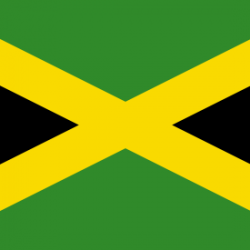
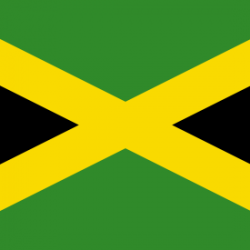
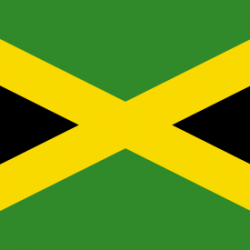
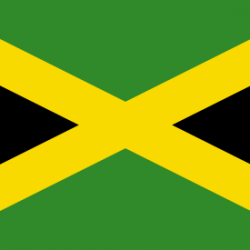
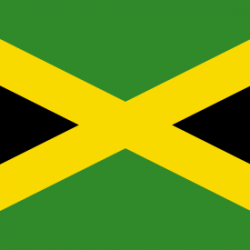
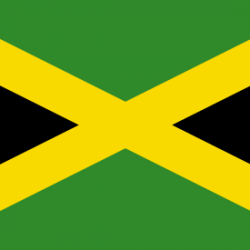
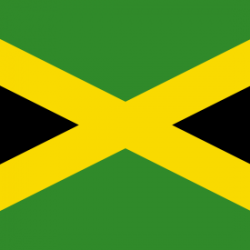
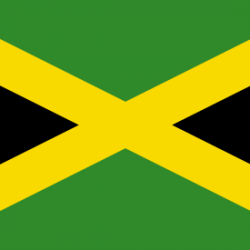
 We will not leak your personal information
We will not leak your personal information